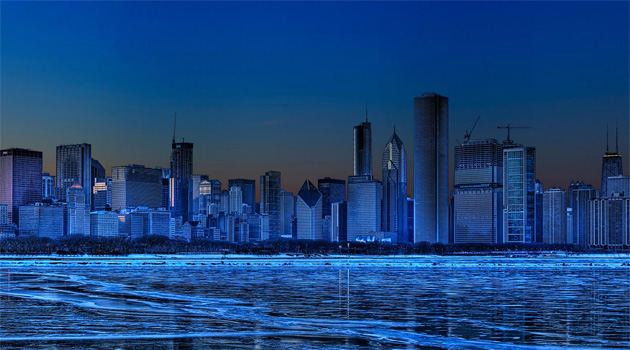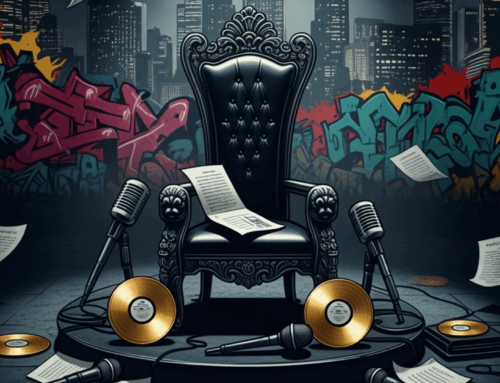 Even with all of their visibility on the charts and at festivals, mainstream DJs and producers somewhat have it harder than the independent performer. They’re at a convergence of three forces, expected to appease and satisfy each: The promoter, such as Live Nation, that is expecting some degree of consistency; fans, particularly the newer ones, who want the hits but also want to have a good time; and creativity, lurking behind all of those dollar signs, sold singles, and endorsements.
Even with all of their visibility on the charts and at festivals, mainstream DJs and producers somewhat have it harder than the independent performer. They’re at a convergence of three forces, expected to appease and satisfy each: The promoter, such as Live Nation, that is expecting some degree of consistency; fans, particularly the newer ones, who want the hits but also want to have a good time; and creativity, lurking behind all of those dollar signs, sold singles, and endorsements.
How does a set reflect this? For some performers, it all comes together perfectly. Berlin-based house and techno DJ Martin Landsky, in speaking with the Miami New Times in 2011, explained the perfect set is, “Sometimes these magic moments happen when everything seems to click together: the room, the sound, the music, the crowd, and the DJ. These are the situations where DJing becomes totally subliminal. I don’t think anymore about what to play or how to play it. It happens automatically. It’s like the music takes control of itself. The crowd is 100 percent on the same level and follows the music even through the strangest and most sophisticated songs.”
Landsky, frankly, is extremely lucky, or just glossing over the amount of thought and planning required. Others, on the other hand, plan theirs down to the minute. Yakov Vorobyev, president of Mixed in Key, boiled a DJ set down to a formula: start with an instrumental track, one no longer than two minutes and 30 seconds, and then transition into a four-minute long vocal track, and, then from there, limit all other tracks to no more than five minutes.
Ean Golden, of DJ Tech Tools, on the other hand, determines the perfect DJ set to be a tightrope walk, one based on spontaneity and reading the audience but additionally involves significant planning beforehand. Golden, too, agrees that sets can reach that “magic” moment Landsky describes, but never is the culmination organic. Instead, through grouping tracks, sequencing, some rehearsing, and preparing for the inevitable adaptability only can it emerge.
But, what none of these professionals and experts consider is the producer-turned-DJ headlining festivals, or prominent clubs like Pacha NYC or Las Vegas’ Marquee. Such professionals walk a line between hits – can Avicii do a set without throwing in “Levels” and still have a pleased crowd? – and authenticity – or technique, which has come under fire ever since Deadmau5 talked about “pressing a spacebar” sets. When you have these three forces behind you, how do you effectively maintain the right balance?
Consider The Fans…
Ever since the DJ became more prominent, becoming a figurehead for certain sounds, fans, or clubgoers, associate a particular style, down to remixes, for certain performers. This means David Guetta can’t do a night of dubstep, and Skrillex can’t settle down on a pleasing synth line. So, including a handful of hits – or at least recognizable tracks – is a given but within certain parameters.
… Without Compromising Authenticity
The unfortunate tendency, particularly at mega-festivals, is for DJs just to “press play” or run through their tracks or well-known remixes without variation. A good DJ/producer understands fans will recognize the hits with alterations, be it through added mixing, sampling, loops, or any change. After all, the difference between a DJ set and a rock concert is spontaneity. While a guitar-based act can run through their hits, and fans watch their techniques through solos and go, “So, that’s how they do it,” DJs – especially producers out of their studios – don’t have this luxury. Instead, a set, in using the rock concert comparison, is all about the creativity behind the knob-twiddling.
Consider the fans’ potential reactions: “Well, he just played through the hits” or “That was a d*mn good remix. I haven’t heard that before.”
Who’s The Promoter?
As much as Live Nation, gobbling up the promoters behind Creamfields and Hard Events, pays lip service to “authentic” EDM, a Live Nation-backed event, from a creativity perspective, is no substitute for a club set. For one, a DJ may be reduced down to just 45 minutes. How much can you do with that? Club sets, on the other hand, can be a four-plus hour endeavor.
A promoter, then, just isn’t the difference between a hits-driven and experimental set. Rather, a promoter essentially defines pacing, and a DJ/producer attempting to force that four-hour long club set into a festival spot often suffers “trying to do too much at once”-syndrome.



